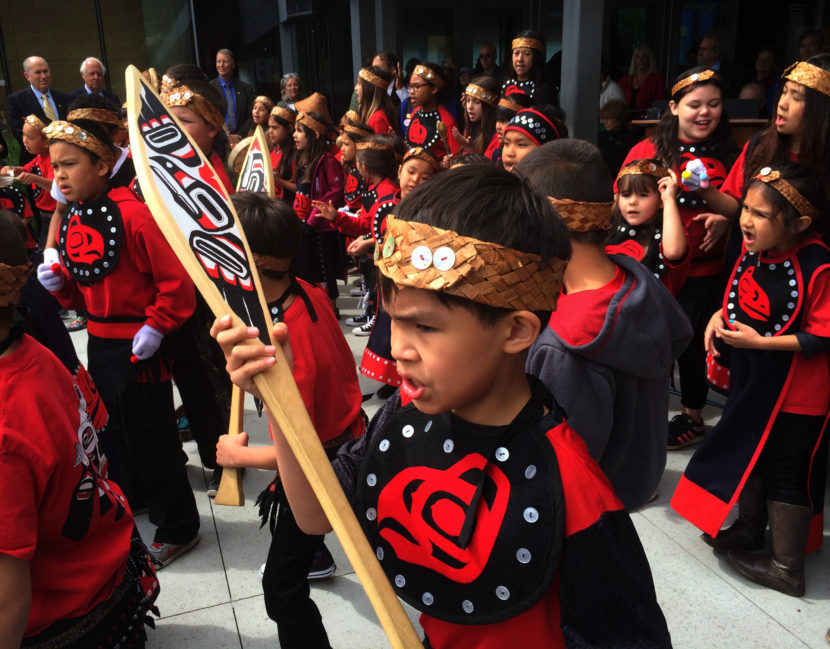
A program at Juneau’s Harborview Elementary has been integrating Lingít language and culture into classroom teaching for decades. Now it’s expanding to middle school, with plans to teach other subjects in Lingít as well.
Molly Box is the interim principal for the Tlingit Culture Language and Literacy program. She said parents were excited to hear their children could stay in the program longer.
“Families who have fourth graders or fifth graders were like ‘Oh my gosh, this kid can’t think of better news,’” she said.
Box said the program has brought cultural heritage to Lingít students through singing and dancing, and it’s helped students learn about their clans and family histories and celebrate Lingít values at school.
The program has three classrooms at Harborview. Each has a teacher, a Lingít language teacher, and an elder helping out. Box said the program has about a dozen students in each grade.
With funding from the Sealaska Heritage Institute, the program will add a fourth classroom in the fall, for sixth and seventh graders. The grant will pay for two new classroom teachers and one Lingít teacher.
They also plan to add eighth grade students in 2024.
Box said that in time, the program will teach other school subjects in Lingít as well.
University of Alaska Southeast Lingít language Professor X̱’unei Lance Twitchell said dual-language programs have proven effective with other Indigenous languages.
“Once they started using the language as a medium of education and said, ‘We’re not teaching the language anymore, we’re teaching through the language,’ then that really shifted things in terms of adult fluency levels, and especially children,” he said.
Jamie Shanley, SHI’s program manager for the language program, said the funding includes training for teachers to help make that possible.
“The grant is also providing some resources for the teachers to strengthen their language acquisition, such as immersion retreats where they go and spend several days together in a place and only speak and live in the language,” Shanley said.
Twitchell said one barrier to dual-language programs is the fear that students won’t be prepared for standardized testing. But those measurements don’t serve language revitalization efforts, he said, and national standardized tests don’t factor Indigenous language learning into their equations.
“If our language is not part of the standard, then we need to reject the standard and say, ‘Okay, well, that might be something that you’re measuring for someone else,” he said. “But don’t use that tool of measurement for children who are invested in and families who are invested in making sure our language is still around.’”
Box said there will be an assessment planned for the program, but it will focus on the students’ language proficiency and how well the program is investing in the Lingít language. She said it’s vital that the program do two things: develop fluency and prepare students academically for the next step.
“We really want to make sure that we lay the groundwork for a really rigorous program, that not only do they get the benefit of staying within TCLL and having the cultural relevance in their education in the Lingít language, and we still prepare them for high school,” Box said.
Box said the program will eventually include programs for families so kids can engage with Lingít at home, too.
Registration for TCLL opens March 1.
